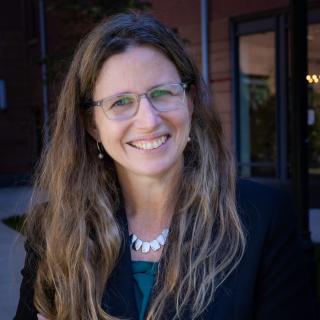Child Care Policy Should be Good for Kids Not Just for Politicians
July 19, 2019
Child care has become a higher profile public policy priority as politicians have taken notice of Americans’ child care concerns. Last year, Congress passed the largest ever increase—$2.37 billion—in the federal government’s major child care program. For FY 2020, the President’s budget proposes a new $1 billion child care fund tied to deregulation. The House has passed an FY 2020 appropriation bill that would add another $2.4 billion for child care and multiple child care bills have been introduced in the House and Senate. All these efforts prioritize expansion to reach more children and families and reduce their child care costs, but only some have provisions to enhance quality—and it is getting quality right that will determine whether federal policy is good for children, especially our youngest and most vulnerable.
Unfortunately, child care quality—and the facts about what is good for young children—may be lost as child care becomes a partisan political football. Expect to hear that all nonparental child care is bad for young children and only mothers can provide good care at the same time others claim that we just need to expand the child care programs we have as increasing quality standards is ineffective and only make things worse. We have already seen these claims in national media, even though they range from misleading half truths to absurdly false.
As researchers and parents, we believe it is our obligation to at least get the facts on table when policy is being debated. What are the key facts?
Child care quality matters for early learning and development, and it matters more the earlier and longer children are in care. Low-quality child care can harm young children’s social-emotional development and physical and mental health. Studies in the US and Canada find some negative impacts persist for many years. In contrast, high-quality child produces lasting positive effects, particularly for language and cognitive development with the greatest benefits for children from low-income and immigrant families, as reflected in studies in the U.S., Chile, Colombia and West Germany.
The quality of child care in the United States is often low enough that we should worry about negative impacts and should not expect persistent positive impacts on children, unless quality is raised. On the other hand, a study in West Germany found that centers with experienced, trained staff produce strong effects. Quality is the result of intentional planning, adequate funding and a strong system of supports. Spending too little per hour per child, as most infant and toddler programs do so today will directly result in low quality. Similarly, when supporting families’ access to child care, plans with low payments will not support adequate compensation.
There are multiple ways to support high-quality child care without breaking the bank. Other countries have led the way in expanding and supporting high-quality child care.
Paid parental leave is one useful, but limited, policy which should exist in conjunction with quality programs. In addition, the length of parental leave policies, even in countries where these are more generous, cover but a small fraction of the early childhood years.
We are excited to see the different proposals Presidential candidates are putting forward to address the needs of America’s families with young children by increasing access and affordability. We challenge all of them to ensure that their proposals put children first by ensuring care has the high quality needed for healthy learning and development.
The Authors
Dr. Milagros Nores is the Co-Director for Research and Research Professor at the National Institute for Early Education Research (NIEER). With a profound expertise in early childhood evaluation, informing data-driven policy and programming, cost and benefits of early interventions, evaluation design, equity, and English language learners, she has established herself as a leading researcher in the field of early care and education.
Allison Friedman-Krauss is an Associate Research Professor at NIEER where she is also the Associate Director for Policy Research and Director of the Infant and Toddler Policy Research Center.
About NIEER
The National Institute for Early Education Research (NIEER) at the Graduate School of Education, Rutgers University, New Brunswick, NJ, conducts and disseminates independent research and analysis to inform early childhood education policy.


